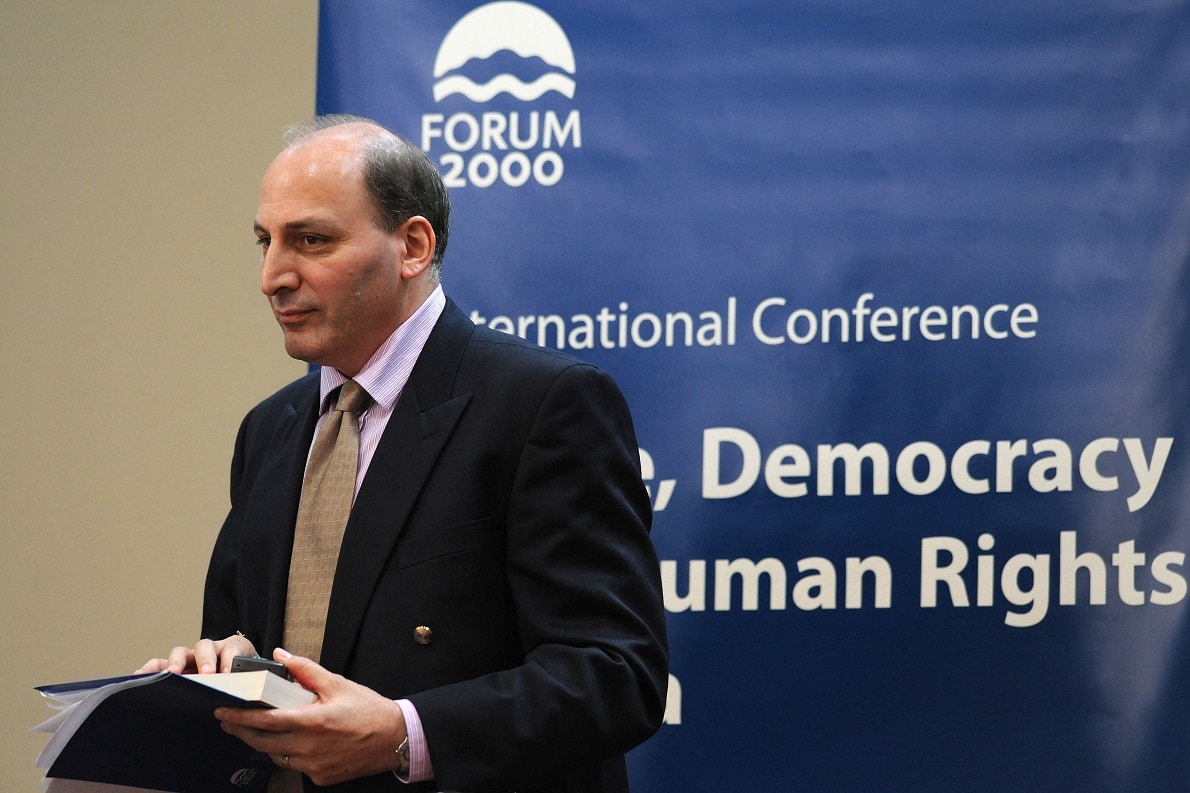Giancarlo Bosetti
21 June 2025
Ramin Jahanbegloo, one of Irans preeminent intellectual figures, attends the conference ‘Peace, Democracy and Human Rights in Asia’ held under the auspices of former Czech president Vaclav Havel on September 11, 2009, in Prague. Other guests of this conference are Tibetan spiritual leader the Dalai Lama, former President of South Africa and Nobel Peace Prize Laureate Frederik Willem de Klerk, Rabiya Kadeer, head of the World Uighur Congress, Robert Menard of France, former Secretary-General of Reporters Without Bord and others philosophers and disidents.AFP PHOTO MICHAL CIZEK (Photo by MICHAL CIZEK / AFP)













